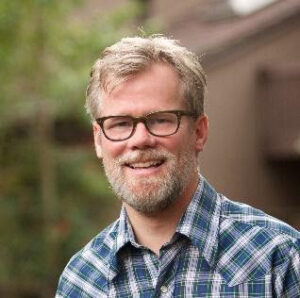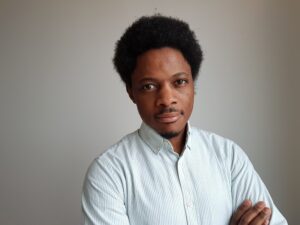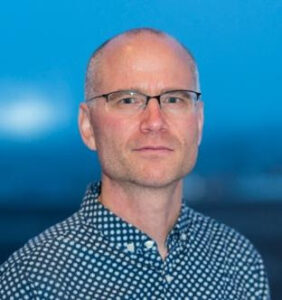SCORAI continues to organize monthly webinars. From now on, registration is no longer necessary; the zoom link suffices to connect. We will operate in zoom call format; so all participants can see each other; and questions are more easily moderated. We hope this will also reinforce the social function of these webinars, i.e. SCORAI members meeting each other remotely.
Zoom link https://us02web.zoom.us/j/84479624608?pwd=MXl4VHpLTllLT3Qrdll0MXBaR3VVZz09
Pass Code 950206
We will send reminders as before, one day and one hour before the webinar begins.
Program (Mondays 10-11 am ET)
September 20: Neal Gorenflo
November 15: Lewis Akenji
December 13: Arnim Wiek
September 20:
Neal Gorenflo, Exec Director Shareable: Turning Academic Insight Into Real-World Impact

Neal Gorenflo is Executive Director of Shareable and a SCORAI advisor. I write to introduce you to the nonprofit I co-founded, Shareable, and a new service we’re offering to academic researchers. Shareable is a nonprofit founded in 2009 to advance sustainable consumption with a special focus on sharing, the commons, and the solidarity economy. Our mission is to empower communities to share. We pursue this mission through three programs — publishing, campaigns, and consulting.
In this webinar, Neal Gorenflo will explore the new demands on academic research projects for more accessibility, public engagement, and real-world impact; how Shareable is working with researchers to meet them; and why meeting them will be of increasing importance in the climate change era. As you’re likely aware, how research is evaluated is changing in a world of open access, citizen science, and alternative metrics. This has broad implications for how academics design, fund, and communicate their research projects. Shareable’s work with NJIT, Lund University, Tufts University, and UNCG reveal a surprising and readily actionable opportunity to increase the quality, relevancy, and impact of research in sustainable consumption and production.
November 15:
Changes in predominant lifestyles, will we meet commitments in the Paris Agreement?
Changes in predominant lifestyles, especially in high-consuming societies, will determine whether we meet commitments in the Paris Agreement and avoid dire consequences of climate change, as warned by the IPCC. And yet…
…In a world with a limited and fast-shrinking global carbon budget, coupled with vast inequalities, how do we allocate the remaining carbon allowance in a manner that is fair while drastically decreasing our footprints within a limited timeframe to avoid irreversible ecological damage?
The new report, 1.5-Degree Lifestyles: Towards a Fair Consumption Space for All, analyses and presents data addressing the above question and more:
- what lifestyles targets are compatible with the 1.5C goal of the Paris Agreement on climate change?
- do we need behaviour change or systems change?
- what are priority areas for making changes?
- what types of policies are acceptable in an ecological emergency?
Bio

December 13:
Arnim Wiek, Arizona State University: The Cooperative Business Model for Sustainable Production and Consumption
Activists, scholars, politicians, entrepreneurs, and citizens express widespread concerns about unsustainable patterns of contemporary production and consumption, ranging from climate change and contamination to public health hazards and social injustices. In search of alternatives to the status quo, there is growing interest in sustainable business practices and models, including the cooperative business model. This talk provides an introduction into cooperative businesses, including worker and consumer cooperatives, and assesses opportunities and limitations for supporting sustainable production and consumption. Illustrative examples draw on multiple years of research and training for developing sustainable cooperative food businesses in Arizona.
Bio
 Arnim Wiek is professor in the School of Sustainability and director of the Sustainable Food Economy Lab at Arizona State University. He also holds guest professorships at Leuphana University of Lüneburg and the University of Freiburg. His team conducts solution-oriented research on sustainable business practices and models, including cooperative businesses and benefit corporations, as well as sustainable entrepreneurial ecosystems and alternative economic development approaches. The topical focus in on food businesses and economies. The team’s projects are conducted in collaboration with entrepreneurs, government agencies, non-profit organizations, and other stakeholders. Courses and training programs the team offers are oriented towards the key competencies in sustainability and adopt an experiential, project-based pedagogy.
Arnim Wiek is professor in the School of Sustainability and director of the Sustainable Food Economy Lab at Arizona State University. He also holds guest professorships at Leuphana University of Lüneburg and the University of Freiburg. His team conducts solution-oriented research on sustainable business practices and models, including cooperative businesses and benefit corporations, as well as sustainable entrepreneurial ecosystems and alternative economic development approaches. The topical focus in on food businesses and economies. The team’s projects are conducted in collaboration with entrepreneurs, government agencies, non-profit organizations, and other stakeholders. Courses and training programs the team offers are oriented towards the key competencies in sustainability and adopt an experiential, project-based pedagogy.
